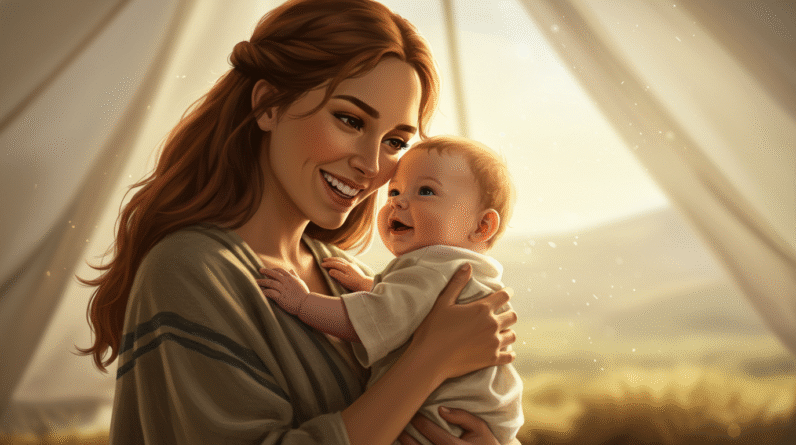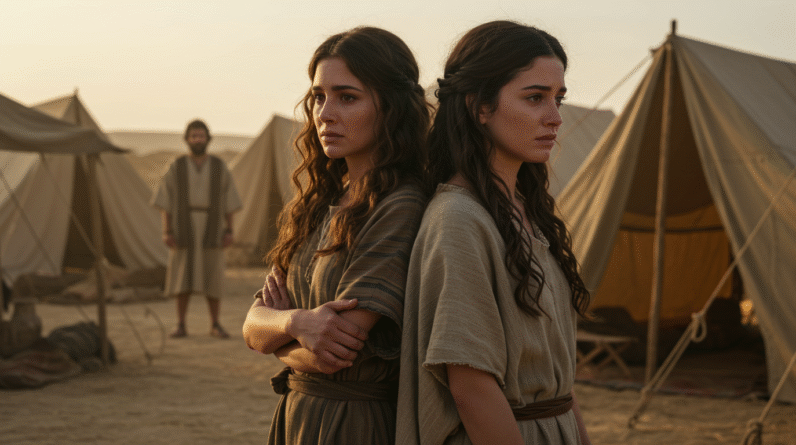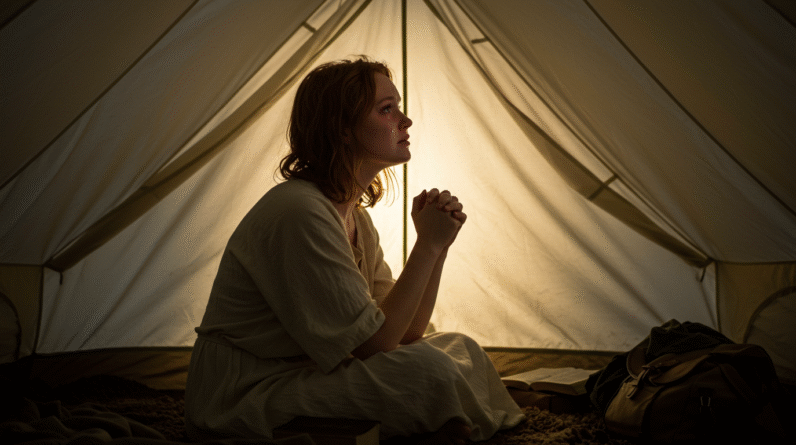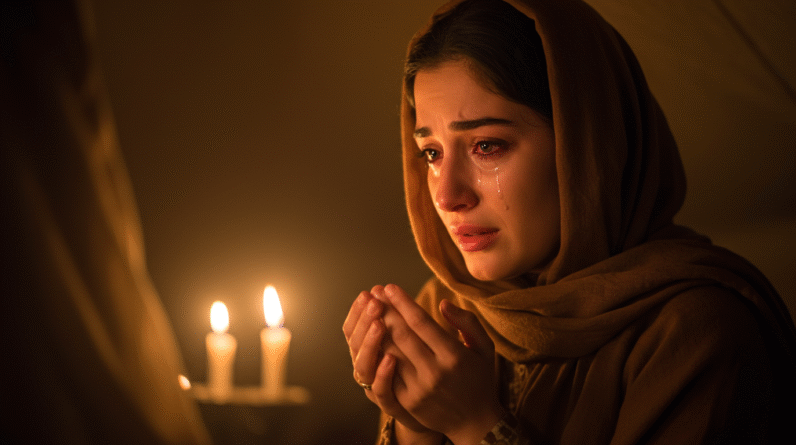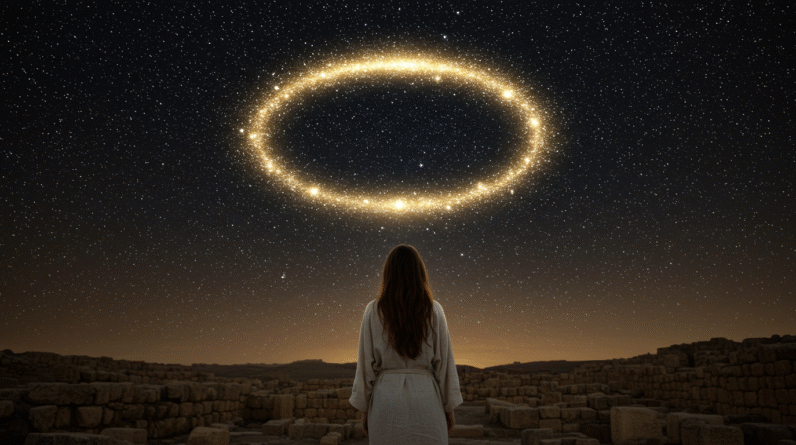Leah Vs. Rachel: When Comparison Steals Your Joy
In the world of siblings, rivalry is often seen as a natural state. We glance sideways, comparing grades, achievements, and the love of our parents. However, few sibling rivalries are as storied—or as emotionally fraught—as that of Leah and Rachel. Found in the pages of Genesis, Leah and Rachel’s story is one filled with deep-rooted desire, complex emotions, and the spiritual quest for self-worth. It’s a narrative that echoes throughout time, resonating deeply with anyone who’s ever felt overshadowed by another’s light. In this article, we’ll peel back the layers of their tale and explore a vital lesson: how the thief known as comparison can steal our joy, and how embracing God’s unique plan can set us free.
The Genesis of Jealousy: Leah and Rachel’s Backstory
The story of Leah and Rachel begins not just as a tale of love and marriage, but one of identity and belonging. Leah and Rachel were sisters, daughters of Laban, a shrewd man who played a pivotal role in their destinies. Jacob, who became a key figure in their lives, fell deeply in love with Rachel, captivated by her beauty and grace. But as the story progresses, it’s clear that Leah and Rachel’s lives are interwoven with complexities that stretch beyond romance.
Their story begins in Genesis 29, where Jacob agrees to work for Laban for seven years in exchange for Rachel’s hand in marriage. Surprisingly, Laban deceives Jacob, marrying him to Leah instead. Jacob, distraught but determined, agrees to work seven more years for Rachel. This deception sets the stage for a life of comparison, where Leah feels perpetually overshadowed by her sister’s beauty and favor in Jacob’s eyes.
Leah: The Unwanted Bride
Leah’s journey is one of seeking love and validation. The lesser-loved wife, Leah stood in Rachel’s shadow, with every gesture of love Jacob showed towards Rachel serving as a stark reminder of her lesser status. Genesis 29:31-32 mentions that Leah, realizing she was unloved, bore children for Jacob hoping that this would win his affection. The constant striving for love defined Leah’s experience, painting a poignant picture of how unfulfilled desires can manifest when validation is sought from human beings rather than from God.
The emotional conflict for Leah was embedded in the belief that her self-worth could be augmented through achievements or validation from those she cherished. It’s a universal struggle that resonates even today. Yet, Leah’s story doesn’t end with her seeking Jacob’s love; there is a gradual shift as she finds deeper meaning and fulfillment elsewhere.
Rachel: The Beloved Yet Barren
On the flip side, Rachel’s experiences are stitched together with the threads of envy and deep longing. Though she was loved deeply by Jacob, Rachel was unable to bear children initially, which in that cultural context, was seen as a significant shortcoming. Rachel’s own emotional landscape was a turbulent sea of feeling cherished but inadequate—a duality that weighed heavily on her spirit. Genesis 30:1 reveals Rachel’s desperation as she pleads for children, expressing that without them, her life seems void of purpose.
Rachel’s struggle was a personal battle with her own perception of success and value. She had what Leah longed for—Jacob’s love—yet she yearned for that which Leah possessed—children. This emotional chasm between what one has and what one desires encapsulates how comparison can wield its power, distorting the vision of what truly matters.
The Cycle of Comparison
At the heart of Leah and Rachel’s story is a cycle of comparison that continually steals joy. Each sister covets what the other has, trapped in an endless loop of dissatisfaction. This deeply ingrained rivalry illustrates how comparison can act as a thief, robbing us of joy and appreciation for our unique blessings.
Comparison is a universal experience. We measure ourselves against siblings, peers, colleagues, and even strangers on social media. This unyielding barometer of self-worth can obscure our vision, making us blind to our unique blessings. For Leah and Rachel, the consequences were deeply personal, impacting their happiness and the tenor of their family dynamics.
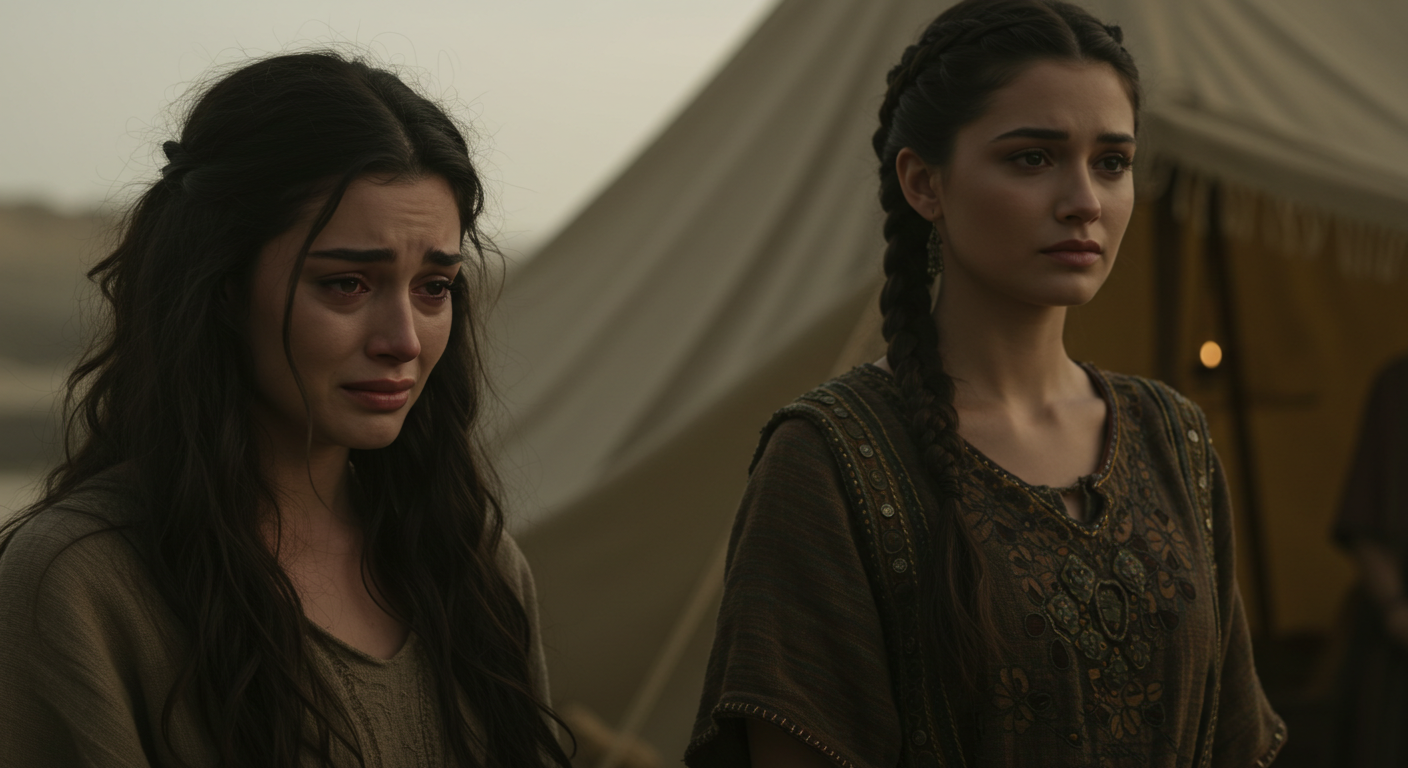
Breaking Free: Trusting in God’s Unique Plan
The story of Leah and Rachel ultimately serves as an allegorical reflection of how fulfilling it can be to break free from comparison’s chains. The realization that God has a unique plan for each of us is a pivotal turning point. Leah eventually finds contentment in her role as the mother of six sons, including Judah, from whose lineage Jesus would arise. In Genesis 30:17, we see her bearing more children, and her focus shifts from seeking Jacob’s love to celebrating her expanding family and role.
For Rachel, the journey is more tumultuous. Her struggles underscore a hard truth: achieving our desires doesn’t always align with finding true satisfaction. Rachel’s story is a reminder that peace comes not from external accomplishments or validations but from internal spiritual alignment. Eventually, Rachel does bear children—Joseph and Benjamin—but her life remains a poignant reminder of how elusive contentment can be when it’s predicated on comparison.
Lessons We Can Learn from Leah and Rachel
There’s a treasury of lessons nestled in the pages of Leah and Rachel’s narrative. Foremost is the understanding that comparison can warp our view of our own worth. When we are fixated on what others have, we miss out on the beauty inherent in our own lives. Embracing God’s plan begins with recognizing that our journey is uniquely ours, crafted by the divine with intention and love.
Leah’s eventual contentment teaches us about gratitude and the importance of shifting focus from what we lack to what we abundantly possess. Her ability to find joy in her blessings, rather than in chasing the unattainable, is a lesson for us all. Similarly, Rachel’s tale serves as a caution about the dangers of pinning happiness exclusively on circumstances or achievements.
To mitigate the perils of comparison, it’s vital to:
- Cultivate Gratitude: Acknowledge and appreciate the unique gifts and opportunities present in your life.
- Trust the Divine Timing: Understand that life unfolds in its own time, guided by a higher plan tailored for our ultimate good.
- Focus on Personal Growth: Channel your energy into becoming the best version of yourself, rooted in love, faith, and purpose.
- Embrace Your Journey: Recognize that your path is meant for you and holds its own special significance.
Faith Over Comparison
In the quest to overcome comparison, faith becomes a pivotal compass. Trust in God’s unique plan can realign our focus, grounding us in the knowledge that our worth is neither dictated by human standards nor contingent on the attainment of specific aspirations. Leah and Rachel’s story reminds us that contentment is found not by measuring against others, but by walking your path with faith and acceptance.
Leah found her peace not through Jacob’s love but through her children and her faith. Similarly, Rachel’s journey, despite its trials, can serve as a testament to the importance of finding deeper meaning beyond worldly measures of success.
Finding Joy in Your Journey
The narrative of Leah and Rachel serves as a mirror reflecting our own struggles with comparison. It reveals the dance of envy and desire that many of us know too well. Yet, more than anything, it showcases the profound peace that rests in accepting our unique journey, guided by faith and trust in something greater than ourselves.
As you reflect on the story of Leah and Rachel, consider how you can embrace your own unique path and find joy within it. Let this ancient tale inspire you to release the grip of comparison and savor the abundance of where you are right now, blooming where you are planted.
By letting go of comparison, you open the door to joy, peace, and a richer appreciation for the life you lead—a life that is wondrously your own, crafted by divine design.
Explore More
For further reading and encouragement, check out these posts:
👉 7 Bible Verses About Faith in Hard Times
👉 Job’s Faith: What We Can Learn From His Trials
👉 How To Trust God When Everything Falls Apart
👉 Why God Allows Suffering – A Biblical Perspective
👉 Faith Over Fear: How To Stand Strong In Uncertain Seasons
👉 How To Encourage Someone Struggling With Their Faith
👉 5 Prayers for Strength When You’re Feeling Weak

📘 Jesus and the Woman Caught in Adultery – Grace and Mercy Over Judgement
A powerful retelling of John 8:1-11. This book brings to life the depth of forgiveness, mercy, and God’s unwavering love.
👉 Check it now on Amazon
As a ClickBank Affiliate, I earn from qualifying purchases.
Acknowledgment: All Bible verses referenced in this article were accessed via Bible Gateway (or Bible Hub).
“Want to explore more? Check out our latest post on Why Jesus? and discover the life-changing truth of the Gospel!”



